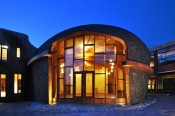 Summer Programs - Culminating Class Trips
Summer Programs - Culminating Class Trips Everything a Teacher Needs
Everything a Teacher Needs Transforming Voices Worldwide
Transforming Voices Worldwide Roadmap to Literacy Books & Courses
Roadmap to Literacy Books & Courses Jamie York Books, Resources, Workshops
Jamie York Books, Resources, Workshops Space speaks. Its language is movement.
Space speaks. Its language is movement. Caring for All Stages of Life
Caring for All Stages of Life Association for a Healing Education
Association for a Healing Education Apply Today: New Cohort Starts Nov. 2025
Apply Today: New Cohort Starts Nov. 2025 Middle School Science With Roberto Trostli
Middle School Science With Roberto Trostli Waldorf Training in Australia
Waldorf Training in Australia Bay Area Teacher Training
Bay Area Teacher Training Quality Education in the Heartland
Quality Education in the Heartland ~ Ensoul Your World With Color ~
~ Ensoul Your World With Color ~ The Journey is Everything
The Journey is Everything Train to Teach in Seattle
Train to Teach in Seattle Bringing Love to Learning for a Lifetime
Bringing Love to Learning for a Lifetime Great books for Waldorf Teachers & Families
Great books for Waldorf Teachers & Families Waldorf-inspired Homeschool Curriculum
Waldorf-inspired Homeschool Curriculum Immersive Academics and Arts
Immersive Academics and Arts Flexible preparation for your new grade
Flexible preparation for your new grade
 Full-Time Teacher Education
Full-Time Teacher Education
Would you like to become a sponsor?
Waldorf News

How Finland Keeps Kids Focused Through Free Play: An American teacher in Helsinki questions the national practice of giving 15 minute breaks each hour—until he sees the difference it makes in his classroom
July 1, 2014
In my quest to understand the value of the Finnish practice, I stumbled upon the work of Anthony Pelligrini—author of Recess: Its Role in Education and Development and emeritus professor of educational psychology at the University of Minnesota—who has praised this approach for more than a decade. In East Asia—where most primary schools give their students a 10-minute break after 40 minutes or so of classroom instruction—Pellegrini observed the same phenomenon that I had witnessed at my Finnish school. After these shorter recesses, students appeared to be more attentive in the classroom. Not satisfied with anecdotal evidence alone, Pellegrini and his colleagues ran a series of experiments at a public elementary school to explore the relationship between recess timing and attentiveness in the classroom. In every one of the experiments, students were more attentive after a break than before a break. They also found that the children were less attentive when the timing of the break was delayed—or in other words, when the lesson dragged on. More »

Parenting Lessons I Learned From a Waldorf Kindergarten
June 16, 2014
It was my dream job and I didn’t get it. All I wanted was to work in that beautiful, quaint school with the wooden toys and the sheer silks where everything smelled of lavender. The Waldorf School looked like the calmest, coolest place on earth and when I set foot in the spare, yet homey kindergarten classroom where I was interviewing for a kindergarten aide position, I felt like I’d found the place where I was meant to be. A few days later, the teacher called and told me the position had been given to someone else and I was crestfallen. A week after that when she called me again to tell me that the person they’d hired had changed his mind about the job after all, I knew that fate had intervened on my behalf. More »

The Impact of Technology on the Developing Child
June 9, 2014
Today's families are different. Technology's impact on the 21st century family is fracturing its very foundation, and causing a disintegration of core values that long ago were the fabric that held families together. Juggling school, work, home, and community lives, parents now rely heavily on communication, information, and transportation technology to make their lives faster and more efficient. Entertainment technology (TV, Internet, video games, iPads, cell phones) has advanced so rapidly, that families have scarcely noticed the significant impact and changes to their family structure and lifestyles. A 2010 Kaiser Foundation study showed that elementary aged children use on average 7.5 hours per day of entertainment technology, 75 percent of these children have TV's in their bedrooms, and 50 percent of North American homes have the TV on all day. Gone is dining room table conversation, replaced by the "big screen" and take out. More »

Max Stibbe Waldorf School
May 28, 2014
We are situated on a beautiful, organic farm, in the tranquil Mooiplaats area, about 20 minutes east of central Pretoria. We have successfully applied the Waldorf approach to the South African context, in a manner that addresses the issues of identity and multi-culturalism. Our educational principles resonate with the African notions of self-respect and dignity, combined with a comprehensive curriculum that is based on the worth of the whole individual. At Max Stibbe School, children are inspired to become effective and purposeful in the world. Imbued with a love of learning, they are prepared to face their future with confidence, competence and initiative. More »

Design Wonder: Marecollege Waldorf School in Leiden, Netherlands
May 20, 2014
Due to urban developments in the city of Leiden, the Marecollege had to move to a new location. At the Sumatrastraat, an abandoned existing school building was transformed into a new school building that was fit for the Marecollege, a secondary Waldorf school with 450 students. 24H was commissioned to make a design for a 3800 m2 program, partially within the existing straightforward building from the 60's and partially in new extensions. The design strategy that was developed was to use the newly built structures to give the existing building a new and expressive identity in the exterior as well as interior. A 'lemniscate' shape was added to the building, forming a new entrance guided by the organic shape, a new central hall where all the dynamism is concentrated. More »
 Recent Jobs
Recent Jobs
View more jobs »
 Newsletter Archive
Newsletter Archive
 Join the Mailing List!
Join the Mailing List!
Stay Connected…
Each week receive the Waldorf News Weekly Update, full of news, events, and more. Keep abreast of what's happening with Waldorf education.
 RSS Feeds
RSS Feeds